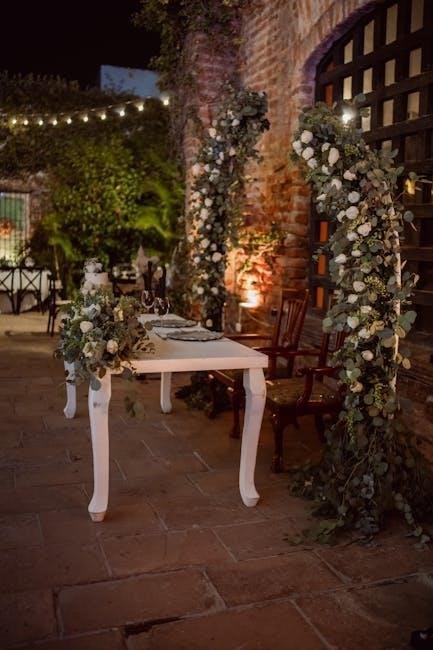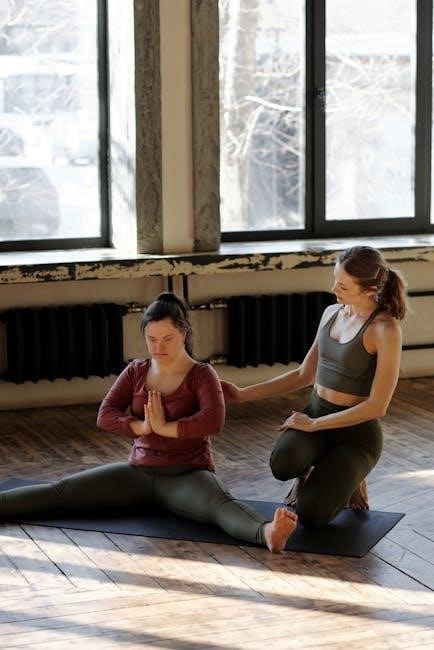A wedding planner guide is a comprehensive resource designed to help couples organize and execute their wedding seamlessly. It includes checklists, timelines, budgeting tips, and vendor selection advice to streamline the planning process. Whether you’re a DIY bride or hiring a professional, these guides provide essential tools to ensure every detail is perfectly coordinated, reducing stress and allowing you to enjoy your special day.
What is a Wedding Planner Guide?
A wedding planner guide is a detailed resource that helps couples organize and execute their wedding efficiently. It typically includes checklists, timelines, budgeting tips, and advice on selecting vendors. These guides are designed to simplify the planning process, ensuring no detail is overlooked. Whether you’re managing the wedding yourself or working with a professional, a planner guide provides practical tools and insights to make the experience less stressful and more enjoyable, allowing you to focus on creating a memorable celebration.
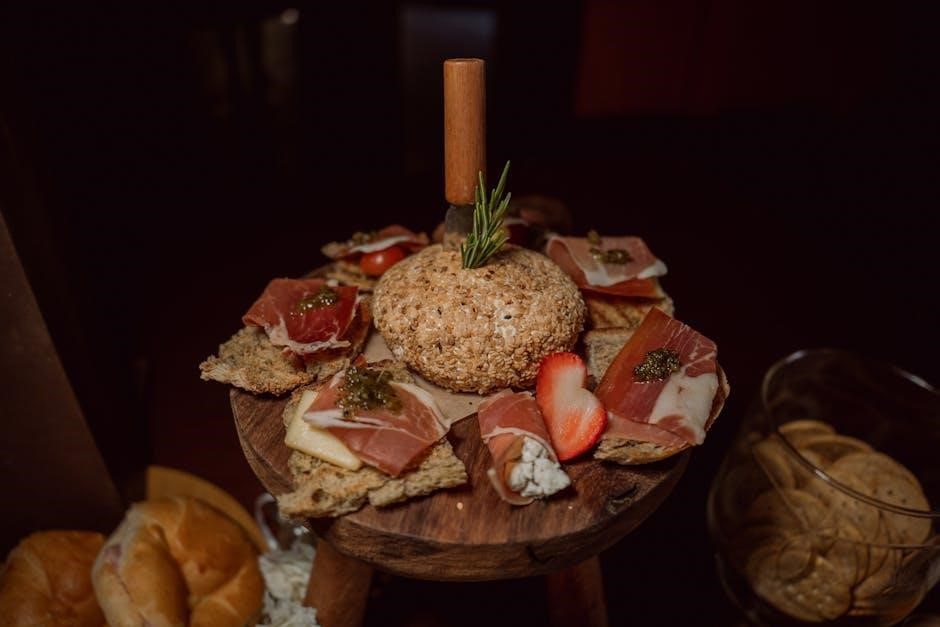
Why You Need a Wedding Planner Guide
A wedding planner guide is essential for organizing and executing a wedding seamlessly. It reduces stress by providing expert insights and practical tools to manage every aspect of the event. With a guide, couples can stay on track, avoid missed details, and make informed decisions. It serves as a one-stop resource, offering checklists, timelines, and vendor selection tips to ensure a smooth and memorable celebration. Having a guide allows you to focus on enjoying your special day while knowing everything is perfectly coordinated.
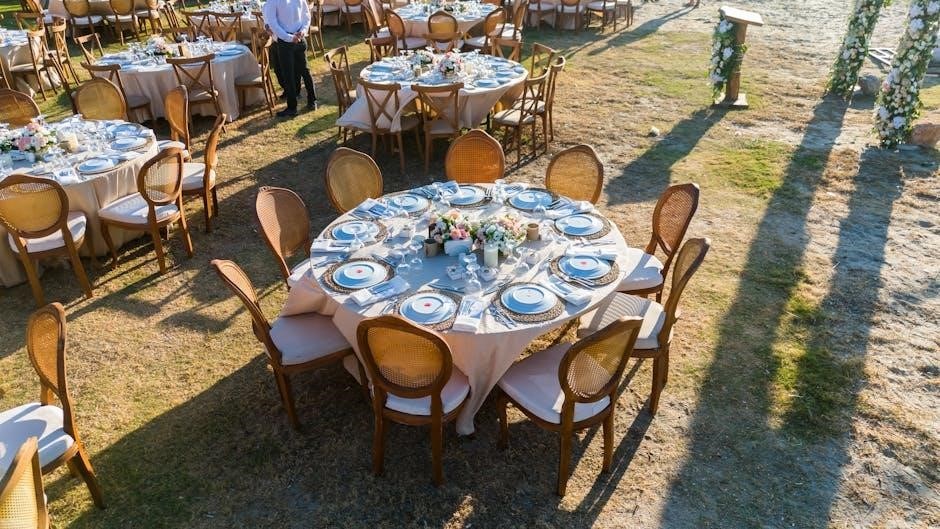
Understanding the Role of a Wedding Planner
A wedding planner organizes and coordinates all aspects of your wedding, ensuring a smooth and stress-free experience. They handle vendor management, timelines, and budgeting to bring your vision to life.
Key Responsibilities of a Wedding Planner
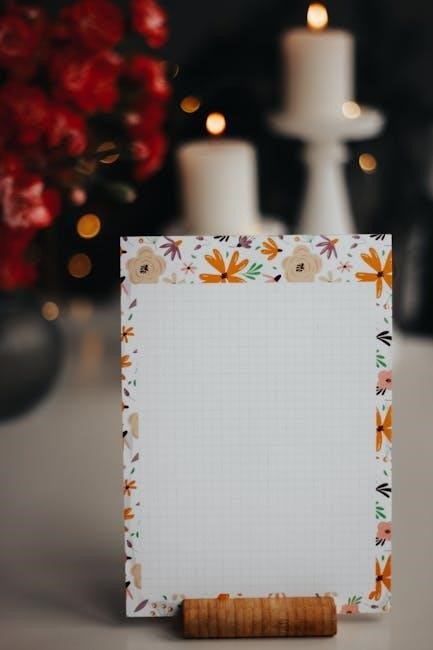
A wedding planner’s primary role is to oversee all logistical aspects of the wedding. They coordinate with vendors, manage timelines, and ensure every detail aligns with the couple’s vision. From venue selection to catering and decorations, they handle negotiations and executions. They also assist with budgeting, offering cost-saving tips and ensuring expenses stay within limits. On the wedding day, they coordinate the flow of events, handle emergencies, and ensure everything runs smoothly. Their expertise helps reduce stress, allowing the couple to enjoy their celebration.
How to Interview Potential Wedding Planners
When interviewing wedding planners, prepare a list of questions to assess their experience and approach. Ask about their portfolio, how they handle unexpected issues, and their coordination style. Inquire about their availability on your wedding date and how they communicate with vendors. Discuss your vision and budget to ensure alignment. Also, ask for references and inquire about their problem-solving strategies. This process helps you find a planner who understands your needs and can execute your wedding seamlessly.
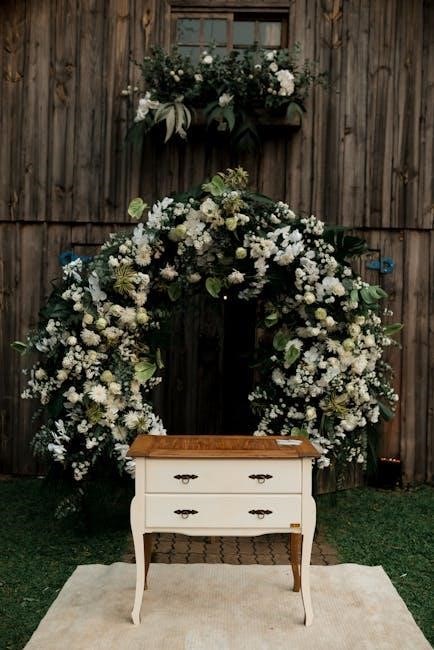
Creating a Wedding Checklist
A wedding checklist is a detailed roadmap for your big day, covering essentials from venue bookings to seating arrangements. It helps track progress and ensures nothing is missed.
Essential Items for Your Wedding Checklist
Your wedding checklist should include venue booking, catering, decorations, photography, attire, stationery, and legal documents. Don’t forget practical items like a wedding party list, transportation, accommodations, rings, gifts, music, and an emergency kit. Organize tasks by priority and timelines to ensure everything is completed smoothly. This comprehensive approach helps manage details efficiently, reducing last-minute stress and ensuring a flawless celebration.
Timeline for Wedding Planning
A wedding planning timeline helps couples stay organized by breaking tasks into manageable steps. Start 12-18 months prior with setting a budget, selecting a venue, and hiring vendors. At 6-9 months, focus on finalizing the guest list, choosing attire, and planning the ceremony. Two to three months before, send invitations, confirm details with vendors, and plan the rehearsal. A month before, review seating, finalize the timeline, and prepare for the rehearsal. Sticking to this schedule ensures a stress-free and well-coordinated wedding day.
Budgeting for Your Wedding
Budgeting for your wedding is crucial to ensure a stress-free experience. Allocate funds to venue, catering, attire, and decorations, and stick to your budget for a memorable day.
How to Create a Realistic Wedding Budget
Creating a realistic wedding budget involves assessing your financial capacity, prioritizing expenses, and allocating funds wisely. Start by determining how much you and your partner can comfortably spend without incurring debt. Consider your savings and discuss your financial comfort levels openly. Next, identify your priorities—whether it’s the venue, catering, photography, or decorations—and allocate larger portions of your budget to these areas. Research average costs for wedding expenses in your area, as prices can vary significantly by location and season. Create a detailed budget breakdown, assigning specific amounts to each category, and include a cushion for unexpected expenses. Consider the number of guests, as this impacts costs for food, drinks, and rentals. Explore cost-saving options, such as a smaller guest list or off-season dates. Compare vendor quotes and negotiate to secure better rates. Evaluate whether hiring a wedding planner aligns with your budget and needs. Consider DIY projects to reduce costs but remain realistic about your time and capabilities. Set up a separate bank account for wedding expenses and decide on payment methods, ensuring funds are available for deposits and final payments. Communicate with your families about financial contributions early on. Lastly, include honeymoon costs in your overall budget and regularly review and adjust your budget as expenses are incurred.
Cost-Saving Tips for Wedding Planning
Planning a wedding on a budget? Consider having an off-season or weekday wedding, as venues and vendors often offer discounts. Opt for a smaller guest list to reduce costs on food, drinks, and rentals. DIY decorations or opting for in-season flowers can also save money. Morning or brunch weddings are cost-effective, as they typically require less food and alcohol. Bundle services with vendors for better deals, and prioritize spending on what matters most to you; These strategies help create a memorable wedding without overspending.
Selecting Vendors and Services
Selecting the right vendors and services is crucial for a successful wedding. Research reputations, compare prices, and ensure they align with your vision and budget for a seamless experience.
How to Choose the Right Wedding Vendors
Choosing the right wedding vendors ensures your event is memorable and stress-free. Start by researching online reviews and asking for referrals. Create a list of potential vendors and compare their services, prices, and portfolios. Schedule consultations to assess their communication style and compatibility with your vision. Ensure they have experience in weddings similar to yours and can handle your specific needs. Clearly discuss your expectations and budget to find vendors who align with your goals and provide quality service.
Questions to Ask Wedding Vendors
When selecting wedding vendors, ask detailed questions to ensure they meet your needs. Inquire about their availability, experience with events like yours, and services offered. Request references and examples of past work; Clarify their backup plans for unexpected issues and confirm setup and cleanup timelines. Ask about payment terms, cancellation policies, and what’s included in their fees. Also, discuss how they handle last-minute changes and ensure they can accommodate your guest count and venue. This ensures a smooth and stress-free experience for your special day.
Planning the Wedding Ceremony and Reception
Planning the ceremony and reception involves selecting a venue, choosing a theme, and coordinating logistics to create a memorable experience. Ensure the space reflects your style, and consider guest comfort and flow between events. Timeline management and vendor coordination are crucial for a seamless transition. Personalize the ceremony with meaningful elements and design the reception to entertain and delight your guests, making your wedding day unforgettable.
Steps to Plan a Memorable Ceremony
Start by selecting a meaningful venue that aligns with your vision and guest count. Define the ceremony structure, including the order of events and speeches. Choose an officiant who resonates with your style and ensures legal requirements are met. Personalize the ceremony with vows, readings, or cultural traditions. Coordinate the processional and recessional, ensuring all participants are rehearsed. Select music that sets the tone, from prelude to exit. Finally, confirm all details with vendors and participants to ensure a seamless and heartfelt ceremony that reflects your love story.
Designing the Perfect Wedding Reception
Begin by selecting a theme or color scheme that reflects your style and complements the venue. Arrange seating to encourage guest interaction, whether through round tables or cozy lounge areas. Lighting plays a crucial role in ambiance, so consider dimming options or string lights. Entertainment, such as a DJ or live band, keeps the energy high. Ensure catering options cater to diverse dietary needs and preferences. Finally, personalize the space with decor, signage, and favors to create a memorable and intimate celebration that flows seamlessly from cocktail hour to the final dance.

Managing Wedding Day Coordination
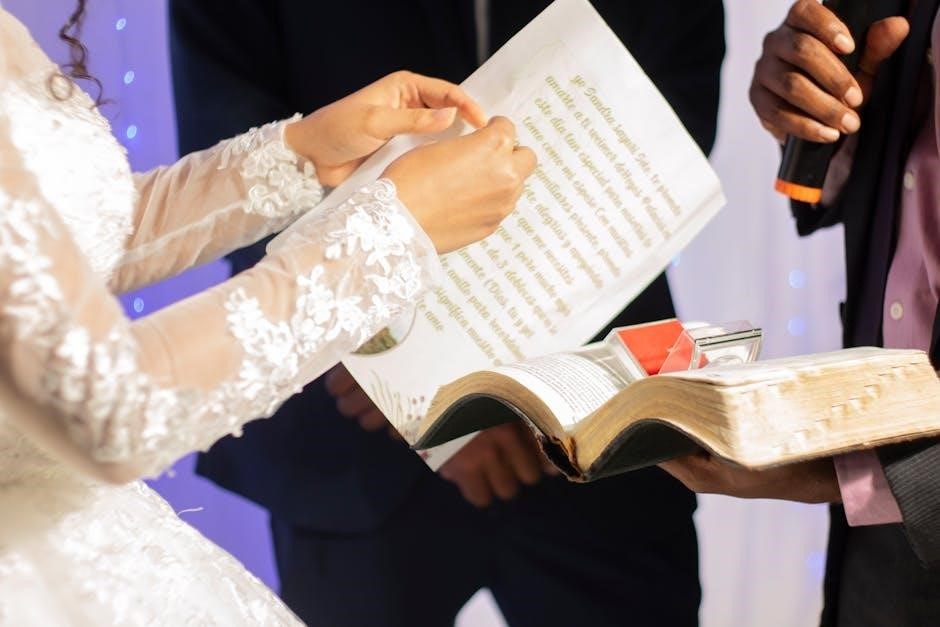
Effective wedding day coordination involves creating a detailed timeline, confirming vendor deliveries, and assigning a point person for last-minute tasks to ensure a stress-free celebration.
How to Ensure a Smooth Wedding Day
To ensure a seamless wedding day, create a detailed timeline and share it with all vendors and participants. Assign a trusted point person to handle unexpected tasks. Confirm vendor deliveries and setup times in advance. Conduct a final walk-through of the venue to verify layout and logistics. Prepare a backup plan for unpredictable factors like weather. Encourage open communication among the wedding party and staff. Finally, allow time for the couple to relax and enjoy the celebration while the planner coordinates the exit strategy.
Final Checks Before the Big Day
Conduct a final venue walk-through to confirm layout and setup. Verify vendor arrival times, including caterers, florists, and photographers. Rehearse the ceremony to ensure smooth execution. Review the seating chart and place settings. Prepare an emergency kit with essentials like bobby pins and tissues. Confirm all payments and gratuities are ready in labeled envelopes. Ensure the wedding party knows their roles and timings. Double-check the weather forecast and have a backup plan if needed. Finally, relax and enjoy the day, knowing everything is in place.
